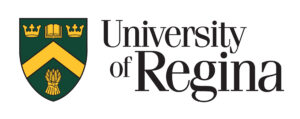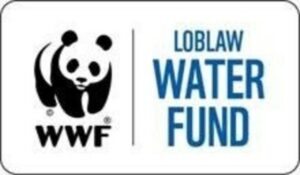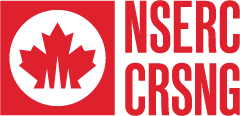Research
Part of empowering citizens is participating in research (both formal and informal) that improves user experience, validates testing methods, and more. We are so grateful to work with many incredible partners, who help us make sure that what we’re doing is rigorous and can be trusted.
Our current research projects
Water quality in Canada: validation, interpretation, and mobilization of community-based water monitoring (2021 – 2025)
Project partners: University of Regina, Environment and Climate Change Canada, Saskatchewan Water Authority
Core funding by: Natural Sciences and Engineering Research Council of Canada (NSERC) and the University of Regina Science Department.
While accurate and relevant data are the cornerstone for evidence-based decision-making in freshwater management, ensuring the accuracy and relevance of these data remains a challenge in Canada’s fragmented monitoring networks. Making sound management decisions requires effective communication and collaboration among a wide range of stakeholders, including those from academia, governmental and non-governmental organizations, and local community groups, yet there is often little coordination and communication among them. The Alliance we propose to build will serve to connect these diverse water stewards presently operating in this country. Our research will provide communities with a simple way to crowdsource water quality data that will transform citizens’ understandings of their water, as well as their ability to participate in water stewardship. The partnership between Dr. Kerri Finlay (U Regina), Water Rangers, and Environment and Climate Change Canada will aim to address challenges associated with sustainable and meaningful Community-based Water Monitoring (CBWM) by improving its legitimacy and validity for academics and government officials. We aim to establish the basis for long-term sustainability in water testing programs across Canada, using Saskatchewan, a province with frequent recreational water quality concerns, as our case study. We will focus on: (1) validating, improving, and legitimizing inexpensive tools that can provide results in real-time; (2) building artificial intelligence tools that use accessible, affordable tests to help answer important questions about water quality; and (3) enabling community-led data management that engages all stakeholders (Community, Non-Governmental, Government, and Academic).
View current information on our website and on Dr. Kerri Finlay’s website
View completed research projects

Research highlights
We are currently conducting formal academic research with Carleton University and McGill University on happiness, nature connectedness, values and water stewardship.
Informally, we’ve been conducting research for the past few years! As we complete programs, such as this one funded by WWF-Canada and Loblaw, we usually ask our participants to fill out carefully designed questionnaires. This is so we can develop an understanding of how people’s relationships with water change as a result of testing it! So far, we’ve found that when people test the water, they end up feeling more connected to it and want to protect it as a result. This informs our “theory of change”, which says that when people learn about, and then test water, they are prompted to act to protect waterways.
Check out the impact reports which explain the results of some of our programs in greater detail!
White papers we’ve contributed to
- Community-based Water Monitoring & the Federal Water Agency (Letter signatory published in 2021)
- Growing the Flow (Whitepaper published in 2020)
Literature featuring Water Rangers
- Using citizen science to track harmful cyanobacterial blooms through crowdsourcing and crowdfunding – Adopt a Lake project (Simon et al., 2022)
- “As It Flows Down from the North”: Confluences of Water Stewardship Emerging from the Ottawa River Watershed (Langille, 2017)
- Horizon scan of conservation issues for inland waters in Canada (Pérez-Jvostov et al., 2019)
- Towards democratizing water quality monitoring processes for the lower Grand River and nearshore Lake Erie (Ho, 2021)
- The legacy of regional industrial activity: Is loon productivity still negatively affected by acid rain? (Bianchini et al., 2021)
- A Business Case for Investment in Canadian Community-Based Water Monitoring (Gunn, 2021)
- Hopeful Communication about Citizen Science in Water Ecology: A Rhetorical Critique of “Citizenship” Language and Values (Spoel, n.d.)
- Constituting good citizen scientists within environmental citizen science discourse (Spoel, 2021)
Literature related to Community-Based Water Quality Monitoring
There are many published research papers that show the effectiveness of community water monitoring! Here’s a few examples:
- Community science-based monitoring reveals the role of land use scale in driving nearshore water quality in a large, shallow, Canadian lake
- Citizen science for water quality monitoring: Data implications of citizen perspectives
- Monitoring water quality in Toronto’s urban stormwater ponds: Assessing participation rates and data quality of water sampling by citizen scientists in the FreshWater Watch
- A review of citizen science and community-based environmental monitoring: issues and opportunities
- Community-Based Monitoring as the practice of Indigenous governance: A case study of Indigenous-led water quality monitoring in the Yukon River Basin
- Using citizen science to understand river water quality while filling data gaps to meet United Nations Sustainable Development Goal 6 objectives
- Understanding volunteer motivations to participate in citizen science projects: a deeper look at water quality monitoring
Do you have a research idea you’d like to talk to us about? Contact us!









